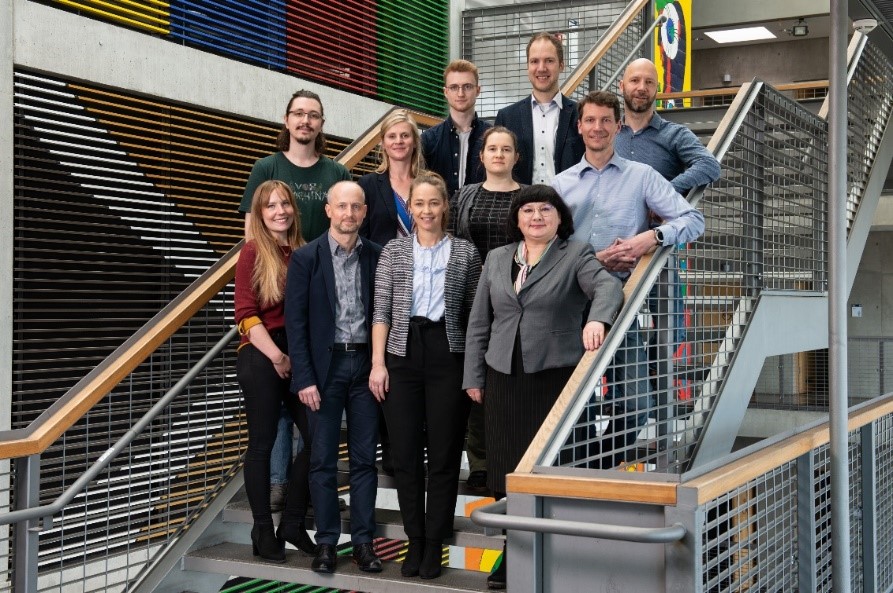Professional Development and Competence Management Unit
Second milestone meeting on the diffusion of digital technologies in vocational education and training through collaboration between learning facilities (DiBBLoK) in Dresden

On March 13th, 2020, the second milestone meeting in the research project “Diffusion of Digital Technologies in Vocational Education and Training through Learning Place Cooperation (DiBBLoK)“ took place in the lecture hall center of the Technical University of Dresden.
The joint project, which is funded by the Bundesministerium für Bildung und Forschung (BMBF)within the framework of the “Empirical Education Research“ program, aims to identify successful conditions for the use of digital technologies within the on-site learning cooperation of vocational education and training. Finally, recommendations and measures concerning the digitization processes in vocational education and training can be derived from the scientific findings on the institutional and individual levels.
The joint project management by the TU Dresdens Chair of Education Techology invited the participating partners – Fraunhofer IMW, the Media Center of the TU Dresden and the Media Informatics Department of the FH Dresden, as well as the BPS Education Portal Sachsen GmbH. Priority was given to the results of past work and the current status of the indicator system for the study of conditions of successful digitization was discussed together. The study, for which the research aspect is constantly being developed, captures prerequisites - in the sense of fundamental, organizational, personal, didactic and technological factors for digitization - in vocational education and training. The system serves not only to develop a basic common understanding between the network partners about the terms used, but also as a theoretical framework and instrumentation, on which surveys and evaluations can be based.